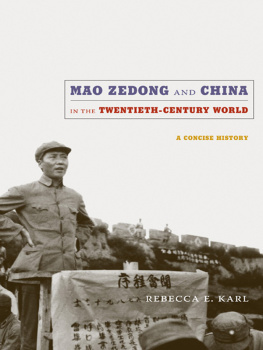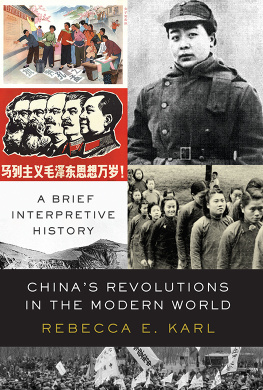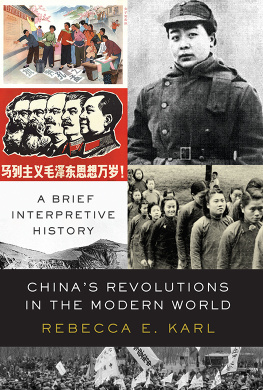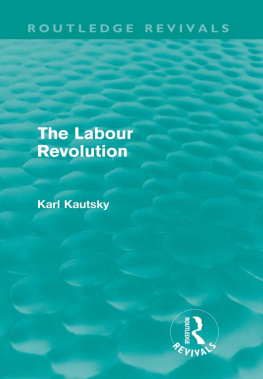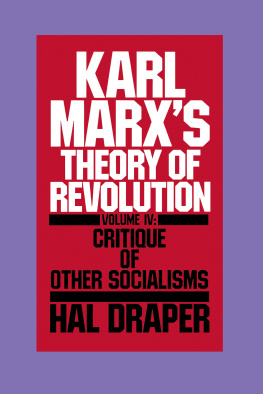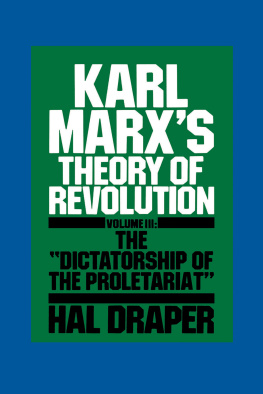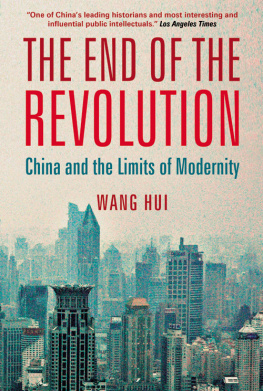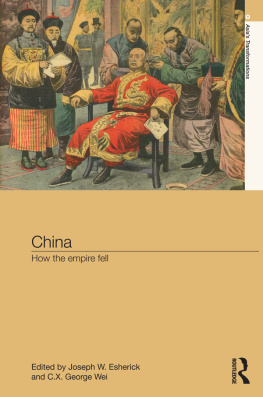Mao Zedong and China in the Twentieth-Century World
A Concise History
Rebecca E. Karl
Duke University Press Durham and London 2010
2010 Duke University Press All rights reserved
Printed in the United States of America on acid-free paper Designed by Heather Hensley
Typeset in Warnock Pro by Keystone Typesetting, Inc.
Library of Congress Cataloging-in-Publication Data
Karl, Rebecca E.
Mao Zedong and China in the twentieth-century world:
a concise history / Rebecca E. Karl.
p. cm. (Asia-pacific: culture, politics, and society)
Includes bibliographical references and index.
ISBN 9780822347804 (cloth: alk. paper)
ISBN 9780822347958 (pbk.: alk. paper)
1. Mao, Zedong, 18931976. 2. Heads of state China-Biography. 3. China History 19491976. 4. China-History Republic, 19121949.1. Title. II. Series: Asia-Pacific.
DS778.M3K359 2010
951.05092 dc22
[B]
2010005250
Rebecca E. Karl is an associate professor of history and East Asian studies at New York University. She is the author of Staging the World: Chinese Nationalism at the Turn of the Twentieth Century (Duke, 2002). She edited (with Peter Zarrow) Rethinking the 1898 Reform Period: Political and Cultural Change in Late Qing China (2002) and (with Saree Makdisi and Cesare Casarino) Marxism beyond Marxism (1996).
epub version 1.0
To my Nephew, Christopher,
And My Nieces, Tepi, Channa, Sophia, and Nora:
with love and in hope.
Preface and Acknowledgments
Say Mao Zedong in China or among China scholars anywhere and there is a ready-made argument. The disputes over Jung Changs and Jon Hallidays recently published Mao: The Unknown Story provide just one example. According to many reviewers of that book, the story therein told is unknown because Chang and Halliday substantially fabricated or exaggerated it into existence. According to others, Chang and Halliday have finally exposed Mao in all his naked cruelty to a hitherto credulous world. Whichever side one takes and there are more than these two alone the polemic gets polarized, the rhetoric heated, and the arguments intolerant. In China, it is even worse. Attempts to reassess portions of the Mao period particularly by taking the Cultural Revolution (196676) seriously bring accusations of desires to bring Maoism back to life, of wishing to negate the post-Mao Dengist reforms and return the country to poverty and global irrelevance, and of being anti-Chinese.
As Mao Zedong and his legacy for China are fought over by scholars and laypeople alike, certain parts of Maoism are now detached from their revolutionary meaning and historical context and reborn as fundamentalist capitalist tenets. Business schools routinely teach about guerrilla marketing, a strategy supposedly derived from Maos theorization of protracted war. Mao as kitsch and commodity floods the consumer market, available on eBay or at any roadside stand in Chinese tourist spots. As the scholar Michael Dutton wrote of this phenomenon in 1998, Mao sells, but what he sells today is the very new idea of everything being for sale (Streetlife China).
The current text joins the scholarly fray implicitly and becomes yet another commodity on the market, yet it engages neither the academic nor the market realm explicitly. But, it engages both implicitly. In the case of the scholarly fray, what can be said of the current effort is that the book takes Mao Zedong and his era in Chinese and in global terms quite seriously. It takes socialism in China and the world as integral to the history of the twentieth century. It construes Mao and Maoism as central to the history of Chinese and global socialism, as well as central to the history of revolution and modernity in the last century. Even this mildest of approaches to the subject lands the text in fraught politics. Some would like to understand those politics in terms of todays uncompromising opposition between freedom and tyranny. In the absurd good vs. evil passing for political analysis in some quarters these days, taking Mao and socialism seriously puts one, by taint of conflated ideological association, on the side of evil and tyranny. This text, then, could be taken as an extended argument against such simplistic reductions.
As for the book as a commodity, the market will decide. I have written the text as accessibly as possible without sacrificing complexity. While Maos life is the chronological frame of the narrative, twentieth-century Chinese and world history are what makes Mao possible. Discussing Mao without Chinese and world history is quite impossible, just as discussing modern Chinese history without Mao is also quite impossible. The book makes every effort to make Mao and China reflect on one another in complex ways.
This text attempts to reattach Mao to a historical moment of crisis demanding critique and action. It tries to understand how, out of the multiple catastrophes of the early twentieth century (Chinese and global), Mao dared to propose and activate a revolutionary project calling every convention into question so as to remake the world. Recalling Maos challenge is to recall a time when many things seemed possible; it is to remember possibility against the pressure to concede to the world as it now appears. In this sense, I am less concerned in the text about whether Mao individually wrote or thought all the things attributed to him and more concerned with Mao as a figure in Chinese and global history: as a maker of revolution. This is not a biography but rather a history on the model of Georg Lukcss consideration of Lenin in the 1920s.
For many of the formulations and approaches in this book, I am grateful to two sets of intrepid and intelligent undergraduate students at New York University: those in my inaugural Mao and the Chinese Revolution class of Fall 2005, assisted by the PhD student and tireless graduate labor organizer (GSOC), Maggie Clinton; and those of the fall 2000 version of that course, ably assisted by the PhD students Feng Miao and He Xiang. In Fall 2005, in addition to learning about Mao, students were forced to confront politics in their everyday lives, as we faced the stand-off between the graduate student union and the NYU administration. It was a marvelous lesson in politics in action, although also a dispiriting lesson about strong-arm domination in reality.
The students in these two classes allowed me with significant challenge to introduce Mao and his revolutionary philosophy in terms a politically engaged, yet slightly confused, younger generation might understand. They allowed me to discuss Mao in ways relevant to todays world, without conflating todays problems with Maos. Most important, they permitted me to engage them in a theoretical and historical sophistication sufficient to forestall simplistic reductions. Together, we strove to restore complexity and philosophy to historical inquiry and contemporary critique. The most industrious of these students Eliot Ayer, Jessica Perlman, Margaret Hsu, Andrew Ongchin, Max Kubicki, Mark McConaghy, Sylwia Weiwora, Andrew Samuel, Riazul Islam, Kaitlin Collins, Megan Smith, and Destin Hodges, among others learned to grapple with the philosophical problems of revolutionary thought and practice, while working through the politics and historical problems Mao faced as a committed Marxist revolutionary and a Chinese living in the twentieth-century world. They demonstrated great ability to resist the conflation of the past with the present, while also recognizing how the past can potentially exist in the present as a principle of historical transformation. In this, they proved both wise and adept. I am grateful to them for taking me seriously and allowing me to learn from their questions and confusions.
One motivation for writing this book was personal. It is dedicated to my nephew, Christopher, and my nieces, Tepi, Channa, Sophia, and Nora, who face so many challenges, in part as legacies of the historical moment discussed here. The world they and their generation will inherit is much poorer for what has been called the project of
Next page
